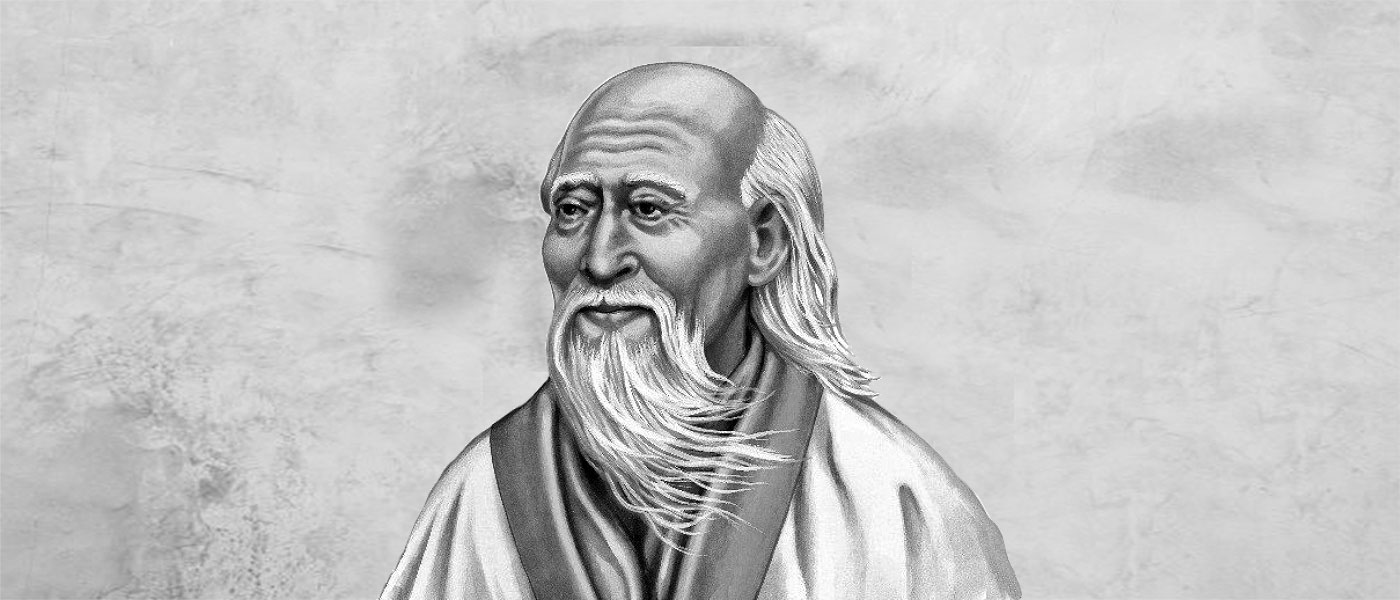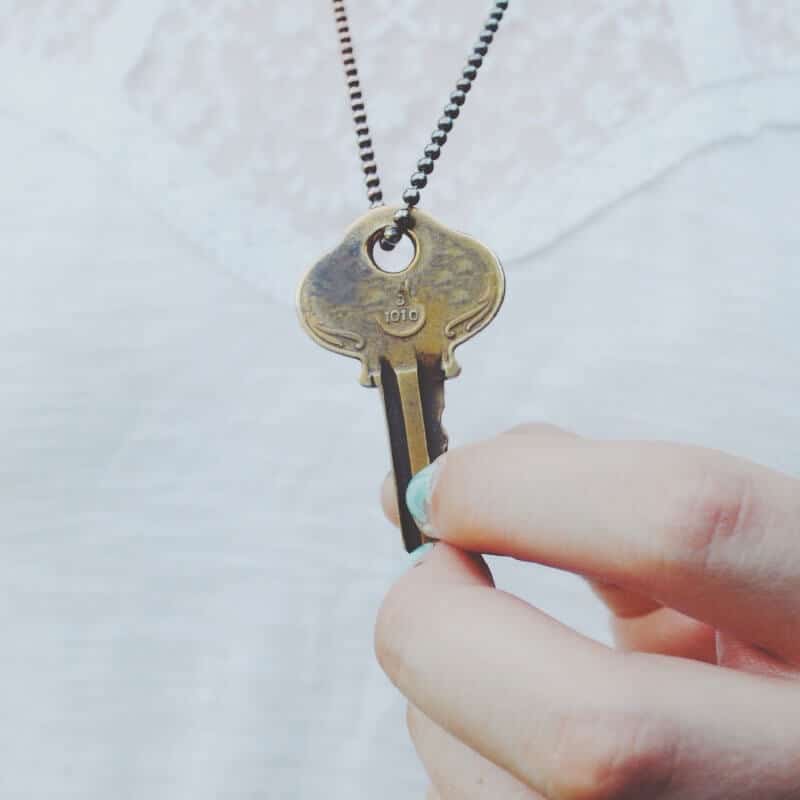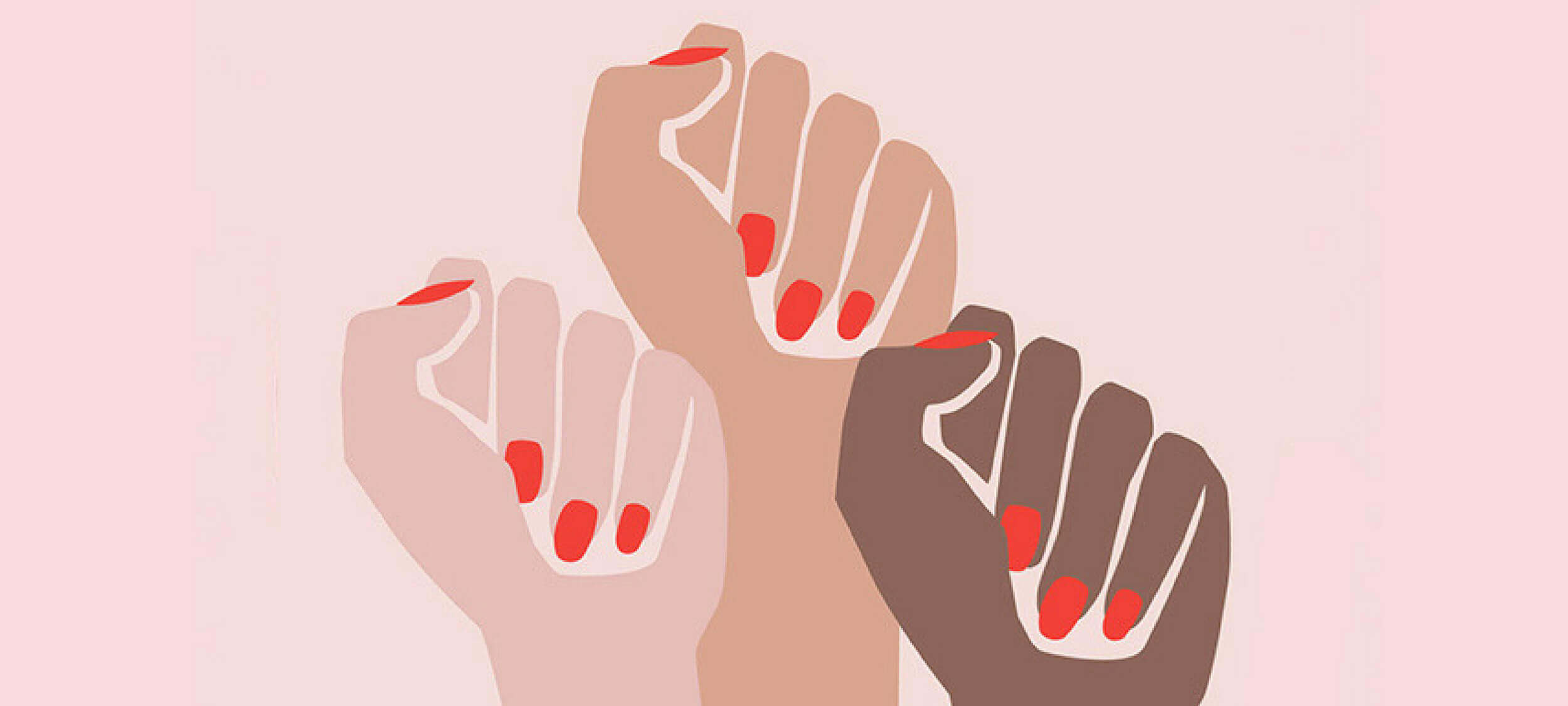Ethics Explainer: Respect

The concept of respect arises in two major forms. We’ll call them respect (lite) and respect (full).
Respect (lite)
Respect (lite) is in play when being polite, considerate and mindful of another person. It can also be demanded from another as a mark of deference to their rank, seniority, experience or standing in the world. We see it in statements like: “respect your elders”, “show a little respect”, or “with all due respect”.
It tends to be allied to the claim that respect is best earned rather than demanded. However, the idea that respect (lite) needs to be earned is one of the most important ways of distinguishing the ‘lite’ concept from the ‘full’ form.
Respect (full)
Respect for persons may perhaps be the most fundamental principle in all of ethics. Respect (full) calls on each and every one of us to respect the intrinsic dignity of all other people. If something is intrinsic to us, it is essential to our being and cannot be earned. It is a property of being a person.
The source of intrinsic dignity has varied over time and across cultures. For example, within Judaism, Christianity and Islam (at least), the intrinsic dignity of persons comes from being made in the image of God. In each of these traditions, the image isn’t literal. Rather, the reference is to being made in the ‘moral image’ of God – and most importantly, being endowed with free will.
There are also secular sources of personhood. Perhaps most famous is Immanuel Kant’s linking of personhood and intrinsic dignity to our rationality. This quality of ours means we all belong to what Kant calls the ‘Kingdom of Ends’.
‘The Kingdom of Ends’ is a thought experiment Kant created in which all human beings are treated as ends (where they and their wellbeing are the goal), and not as a “means to an end” (where the benefit of others is the goal). You’ve probably heard someone say, “My job is a means to an end”, meaning they don’t care much for their work but do care about the rent, family or travel their work pays for.
Having made a distinction between means and ends, Kant goes on to say a person should never be used as a means. Unsurprisingly he had a prohibition against slavery, the ancient institution where people become the property of someone else who uses them as a tool for their own benefit.
Respect (full) is what we count on as the source of principled opposition to all forms of discrimination against persons – whether it be because of age, gender, sexuality, race, religion… whatever.
Joining the two ideas together
These two versions of respect are clearly related. It is just that we tend to lose sight of the connection. Polite, respectful debate about contentious issues is not just about avoiding harmful consequences. It can (and should) go deeper – right back to recognition of the intrinsic dignity of others.
That is ultimately the reason why we should listen to their opinion. It is why we should attack the arguments and not the person. It is why we should refrain from insulting, bullying, silencing or oppressing others even if we fundamentally disagree with them.
Of course, civilised and principled disagreement can help avoid matters getting out of hand when tempers fray. But safer, better forms of deliberation are collateral benefit of acting on the principle of respect for persons – and acknowledging their intrinsic dignity – even when we are opposing them.
Ethics in your inbox.
Get the latest inspiration, intelligence, events & more.
By signing up you agree to our privacy policy
You might be interested in…
Opinion + Analysis
Relationships
Israel Folau: appeals to conscience cut both ways
Opinion + Analysis
Society + Culture, Relationships
There is more than one kind of safe space
Big thinker
Relationships
Big Thinkers: Laozi and Zhuangzi
Explainer
Relationships
Ethics Explainer: Ad Hominem Fallacy
BY The Ethics Centre
The Ethics Centre is a not-for-profit organisation developing innovative programs, services and experiences, designed to bring ethics to the centre of professional and personal life.
Ethics Explainer: Conservatism

Contrary to what many assume, the conservative political tradition is neither reactionary nor opposed to change. True conservatives are simply wary of revolutionary change – especially when inspired by utopian idealism.
Conservatives prefer an evolutionary approach, where experience, common sense, and pragmatism lend a certain stability to society and its institutions.
We could sum up the conservative political outlook in a couple of maxims:
-
“If it ain’t broke, don’t fix it”
-
“Don’t throw the baby out with the bathwater”
It is important to distinguish between conservatism as an ideological outlook and the conservative brand some political parties operate under. Some practice the type of cautious conservatism described above, whereas others are more radical in their outlook.
Conservatism is often associated with liberalism, unregulated capitalism, and in some cases, libertarianism. This is no accident. It’s the product of a mixed history of ideas and the occasional opportunism of certain individuals and political parties who have misappropriated the term for their own political ends.
Vive la révolution!
The most famous and early exponent of conservatism is the Irish-British philosopher, Edmund Burke. In most respects, the long-standing member of the British House of Commons was a classic liberal, respecting the ideals of liberty and equality.
But Burke found the French Revolution a step too far. A quick history lesson: the French Revolution was a 10-year uprising that began in 1789 against the aristocratic social and political systems. It eventually overthrew the monarchy.
In the revolution’s push for radical change, Burke saw the seeds of what we might now call totalitarianism – a society where the individual counts for nothing and the State for all. Burke captures this in his Second Letter on Regicide Peace where, describing the Revolutionary Government of France, he wrote:
“Individuality is left out of their scheme of government. The State is all in all. Everything is referred to the production of force; afterwards, everything is trusted to the use of it. It is military in its principle, in its maxims, in its spirit, and in all its movements. The State has dominion and conquest for its sole objects—dominion over minds by proselytism, over bodies by arms.”
This aversion to radical idealism and its tendency to lay the foundation for a totalitarian state is a theme frequently returned to by conservative philosophers. For example, Karl Popper observes in The Open Society and Its Enemies (Volume One):
“The Utopian attempt to realize an ideal state, using a blueprint of society as a whole, is one which demands a strong centralized rule of a few, and which is therefore likely to lead to a dictatorship.”
Like the pigs in George Orwell’s Animal Farm, after all the unrest and upheaval of the French Revolution, overthrowing the monarchy led to Napoleon’s rule, which is widely regarded as a totalitarian dictatorship. The conservative critique of efforts toward revolutionary change provide such examples as an argument for cautious and prudent evolution instead.
Conservatives are likely to feel that proponents of radical change often fail to realise that they will also be swept aside if something entirely new is to be made. As the contemporary philosopher in the ‘Burkean’ mould, Roger Scruton puts it:
“All that conservatism ultimately means, in my view, is the disposition to hold on to what you know and love. And if you don’t hold on to what you know and love, you will lose it anyway.”
Ethics in your inbox.
Get the latest inspiration, intelligence, events & more.
By signing up you agree to our privacy policy
You might be interested in…
Opinion + Analysis
Relationships
Come join the Circle of Chairs
Opinion + Analysis
Business + Leadership, Relationships
Game, set and match: 5 principles for leading and living the game of life
Opinion + Analysis
Relationships
The tyranny of righteous indignation
Opinion + Analysis
Business + Leadership, Politics + Human Rights, Relationships
Tim Soutphommasane on free speech, nationalism and civil society
BY The Ethics Centre
The Ethics Centre is a not-for-profit organisation developing innovative programs, services and experiences, designed to bring ethics to the centre of professional and personal life.
Ethics Explainer: The Panopticon
The panopticon is a disciplinary concept brought to life in the form of a central observation tower placed within a circle of prison cells.
From the tower, a guard can see every cell and inmate but the inmates can’t see into the tower. Prisoners will never know whether or not they are being watched.
This was introduced by English philosopher Jeremy Bentham. It was a manifestation of his belief that power should be visible and unverifiable. Through this seemingly constant surveillance, Bentham believed all groups of society could be altered. Morals would be reformed, health preserved, industry invigorated, and so on – they were all subject to observation.
Think of the last time you were at work and your boss walked in the room. Did you straighten up and work harder in their presence? Now imagine they were always in the room. They wouldn’t be watching you all the time, but you’d know they were there. This is the power of constant surveillance – and the power of the panopticon.
Foucault on the panopticon
French philosopher, Michel Foucault, was an outspoken critic of the panopticon. He argued the panopticon’s ultimate goal is to induce in the inmates a state of conscious visibility. This assures the automatic functioning of power. To him, this form of incarceration is a “cruel, ingenious cage”.
Foucault also compares this disciplinary observation to a medieval village under quarantine. In order to stamp out the plague, officials must strictly separate everyone and patrol the streets to ensure villagers don’t leave their homes and become sick. If villagers are caught outside, the punishment is death.
In Foucault’s village, constant surveillance – or the idea of constant surveillance – creates regulation in even the smallest details of everyday life. Foucault calls this a “discipline blockade”. Similar to a dungeon where each inmate is sequestered, administered discipline can be absolute in matters of life or death.
On the other hand, Bentham highlights the panopticon’s power as being a “new mode of obtaining mind over mind”. By discarding this isolation within a blockade, the discipline becomes a self-propagating mental mechanism through visibility.
The panopticon today: data
Today, we are more likely to identify the panopticon effect in new technologies than in prison towers. Philosopher and psychologist Shoshanna Zuboff highlights what she calls “surveillance capitalism”. While Foucault argued the “ingenious” panoptic method of surveillance can be used for disciplinary methods, Zuboff suggests it can also be used for marketing.
Concerns over this sort of monitoring date back to the beginning of the rise of personal computers in the late 80s. Zuboff outlined the PC’s role as an “information panopticon” which can monitor the amount of work being completed by an individual.
Today this seems more applicable. Employers can get programs to covertly track keystrokes of staff working from home to make sure they really are putting in their hours. Parents can get software to monitor their children’s mobile phone use. Governments around the world are passing laws so they can collect internet data on people suspected of planning terror attacks. Even public transport cards can be used to monitor physical movements of citizens.
This sort of monitoring and data collection is particularly analogous with the panopticon because it’s a one-way information avenue. When you’re sitting in front of your computer, browsing the web, scrolling down your newsfeed and watching videos, information is being compiled and sent off to your ISP.
In this scenario, the computer is Bentham’s panopticon tower, and you are the subject from which information is being extracted. On the other end of the line, nothing is being communicated, no information divulged. Your online behaviour and actions can always be seen but you never see the observer.
The European Union has responded to this with a new regulation, known as “the right to an explanation”. It states users are entitled to ask for an explanation about how algorithms make decisions. This way, they can challenge the decision made or make an informed choice to opt out.
In these new ways, Bentham’s panopticon continues to operate and influence our society. Lack of transparency and one-way communication is often disconcerting, especially when thought about through a lens of control.
Then again, you might also argue to ensure a society functions, it’s useful to monitor and influence people to do what is deemed good and right.
Ethics in your inbox.
Get the latest inspiration, intelligence, events & more.
By signing up you agree to our privacy policy
You might be interested in…
Opinion + Analysis
Politics + Human Rights, Society + Culture
Play the ball, not the person: After Bondi and the ethics of free speech
Opinion + Analysis
Politics + Human Rights
Hey liberals, do you like this hegemony of ours? Then you’d better damn well act like it
Opinion + Analysis
Politics + Human Rights
Big Thinker: John Rawls
Opinion + Analysis
Politics + Human Rights, Relationships, Society + Culture
Punching up: Who does it serve?
BY The Ethics Centre
The Ethics Centre is a not-for-profit organisation developing innovative programs, services and experiences, designed to bring ethics to the centre of professional and personal life.
Ethics Explainer: Ownership

Ethics Explainer: Ownership
ExplainerBusiness + LeadershipClimate + Environment
BY The Ethics Centre 5 JUL 2017
Where lying is the abuse of truth and harm the abuse of dignity, philosophers associate theft with the abuse of ownership.
We tend to take property for granted. People own things, share things or have access to things that don’t belong to them. We rarely stop to think how we come to own things, whether there are some things we shouldn’t be allowed to own or whether our ideas of property and ownership are adequate for everybody.
This is where English philosopher John Locke comes in.
Locke believed that in a state of nature – before a government, human made laws or an established economic system – natural resources were shared by everyone. Similar to a shared cattle-grazing ground called the Commons, these were not privately owned and so accessible to all.
But this didn’t last forever. He believed common property naturally transformed into private property through ownership. Locke had some ideas as to how this should be done, and came up with three conditions:
- First, limit what you take from the Commons so everyone else can enjoy the shared resource.
- Second, take only what you can use.
- Third, that you can only own something if you’ve worked and exerted labour on it. (This is his labour theory of property).
Though his ideas form the bedrock of modern private property ownership, they come with their fair share of critics.
Ancient Greek philosopher Plato thought collective property was a more appropriate way to unite people behind shared goals. He thought it was better for everyone to celebrate or grieve together than have some people happy and others sad at the way events differently affect their privately-owned resources.
Others wonder if it is complex enough for the modern world, where the resource gap between rich companies and poor communities widens. Does this satisfy Locke’s criteria of leaving the Commons “enough and as good”? He might have a criticism of his own about our current property laws – that they’ve gone beyond what our natural rights allow.
Some critics also say his theory denies the cultivation techniques and land ownership of groups like the Native Americans or the Aboriginal Australians. While Locke’s work serves as a useful explanation of Western conceptions of property ownership, we should wonder if it is as natural as he thought it was.
On the other hand, it’s likely Locke simply had no idea of the way in which Indigenous people have managed the landscape over millennia. Had he understood this, then he may have recognised the way Indigenous groups use and relate to land as an example of property ownership.
Karl Marx, and the closely associated philosophies of socialism and communism, prioritise common or collective property over private forms of property. He thought humanity should – and does – move toward co-operative work and shared ownership of resources.
However, Marx’s work on alienation may be a common ground. This is when people’s work becomes meaningless because they can’t afford to buy the things they’re working to make. They can never see or enjoy the fruits of their labour – nor can they own them. Considering the importance Locke places on labour and ownership, he may have had a couple of things to say about that.
Ethics in your inbox.
Get the latest inspiration, intelligence, events & more.
By signing up you agree to our privacy policy
You might be interested in…
Opinion + Analysis
Business + Leadership, Health + Wellbeing, Relationships
Ending workplace bullying demands courage
Opinion + Analysis
Business + Leadership, Politics + Human Rights
Why fairness is integral to tax policy
Opinion + Analysis
Business + Leadership
Why do good people do bad things?
Opinion + Analysis
Business + Leadership
Why purpose, values, principles matter
BY The Ethics Centre
The Ethics Centre is a not-for-profit organisation developing innovative programs, services and experiences, designed to bring ethics to the centre of professional and personal life.
Ethics Explainer: Rights and Responsibilities

Ethics Explainer: Rights and Responsibilities
ExplainerPolitics + Human Rights
BY The Ethics Centre 2 JUN 2017
When you have a right either to do or not do something, it means you are entitled to do it or not.
Rights are always about relationships. If you were the only person in existence, rights wouldn’t be relevant at all. This is why rights always correspond to responsibilities. My rights will limit the ways you can and can’t behave towards me.
Legal philosopher Wesley Hohfeld distinguished between two sets of rights and responsibilities. First, there are claims and duties. Your right to life is attached to everyone else’s duty not to kill you. You can’t have one without the other.
Second, there are liberties and no-claims. If I’m at liberty to raise my children as I see fit it’s because there’s no duty stopping me – nobody can make a claim to influence my actions here. If we have no claim over other people’s liberties, our only duty is not to interfere with their behaviour.
But your liberty disappears as soon as someone has a claim against you. For example, you’re at liberty to move freely until someone else has a claim to private property. Then you have a duty not to trespass on their land.
It’s useful to add into the mix the distinction between positive and negative rights. If you have a positive right, it creates a duty for someone to give you something – like an education. If you have a negative right, it means others have a duty not to treat you in some way – like assaulting you.
All this might seem like tedious academic stuff but it has real world consequences. If there’s a positive right to free speech, people need to be given opportunities to speak out. For example, they might need access to a radio program so they can be heard.
By contrast, if it’s a negative claim right, nobody can censor anyone else’s speech. And if free speech is a liberty, your right to use it is subject to the claims of other. So if other people claim the right not to be offended, for example, you may not be able to speak up.
There are a few reasons why rights are a useful concept in ethics.
First, they are easy to enforce through legal systems. Once we know what rights and duties people have, we can enshrine them in law.
Second, rights and duties protect what we see as most important when we can’t trust everyone will act well all the time. In our imperfect world, rights provide a strong language to influence people’s behaviour.
Finally, rights capture the central ethical concepts of dignity and respect for persons. As the philosopher Joel Feinberg writes:
Having rights enables us to “stand up like men,” to look others in the eye, and to feel in some fundamental way the equal of anyone. To think of oneself as the holder of rights is not to be unduly but properly proud, to have that minimal self-respect that is necessary to be worthy of the love and esteem of others.
Indeed, respect for persons […] may simply be respect for their rights, so that there cannot be the one without the other; and what is called “human dignity” may simply by the recognizable capacity to assert claims.
Feinberg suggests rights are a manifestation of who we are as human beings. They reflect our dignity, autonomy and our equal ethical value. There are other ways to give voice to these things, but in highly individualistic cultures, what philosophers call “rights talk” resonates for two reasons: individual freedom and equality.
Ethics in your inbox.
Get the latest inspiration, intelligence, events & more.
By signing up you agree to our privacy policy
You might be interested in…
Opinion + Analysis
Business + Leadership, Politics + Human Rights
Can philosophy help us when it comes to defining tax fairness?
Opinion + Analysis
Politics + Human Rights, Relationships, Society + Culture
Of what does the machine dream? The Wire and collectivism
Opinion + Analysis
Politics + Human Rights, Relationships
To Russia, without love: Are sanctions ethical?
Explainer
Politics + Human Rights, Relationships
Ethics Explainer: The Harm Principle
BY The Ethics Centre
The Ethics Centre is a not-for-profit organisation developing innovative programs, services and experiences, designed to bring ethics to the centre of professional and personal life.
Ethics Explainer: Vulnerability

In philosophy, vulnerability describes the ways in which people are less self-sufficient than they think.
It explains how factors beyond our control – like other people, events, and circumstances – can impact our ability to live our best lives. The implications of vulnerability for ethics are considerable and wide reaching.
Vulnerability isn’t a new idea. The ancient Greeks recognised tuche – luck – as a goddess with considerable power. Their plays often show how a person’s circumstances alter on the whim of the gods or a random twist of luck (or, if you like, a twist of fate).
This might seem obvious to many people. Of course, external events can affect our lives. If an air conditioning unit falls out of an apartment and lands on my head tomorrow, it’s going to change my circumstances pretty dramatically. But this isn’t the kind of luck philosophers argue is relevant to ethics.
A question of character
The Stoics, a group of ancient Greek philosophers (who are experiencing a revival today) thought only our own choices could affect our character or wellbeing. If I lose my job, my happiness is only affected if I choose to react to my new circumstances badly. The Stoics thought we could control our reactions and overcome our emotions.
The Stoics, much like Buddhist philosophy, thought our main problem was one of attachment. The more attached to external things – jobs, wealth, even loved ones – the more we risk suffering if we lose those things. Instead, they recommended we only be concerned with what we can control – our own personal virtue. For Stoics, we aren’t vulnerable because the only thing that matters can’t be taken away from us: our virtue.
Enlightenment philosopher Immanuel Kant had similar thoughts. He believed the only thing that mattered for ethics was that we act with good will. Whatever happened to us or around us, so long as we act with the intention of fulfilling our duties, we’d be in the clear, ethically speaking. It’s our rational nature – our ability to think – that defines us ethically. And thinking is completely within our control.
Both Kant and the Stoics believed the ethical life was invulnerable. External circumstances, like luck or other people, couldn’t affect our ability to make good or bad choices. As a result, whether or not we are ethical is up to us.
Can one ever be self-sufficient?
This idea of self-sufficiency has faced challenges more recently. Many philosophers simply don’t think it’s possible to be self-sufficient to the degree that the Stoics and Kant believed. But some go further – seeing a measure of virtue in vulnerability. For example, vulnerability has become a popular term among psychologists and self-help gurus like Brené Brown. They argue vulnerability, dependency, and luck make up important parts of who we are.
Several thinkers, such as Bernard Williams, Thomas Nagel, and Martha Nussbaum have criticised the idea of self-sufficiency. Scottish philosopher Alasdair MacIntyre, for example, argues that dependency is in our nature.
We’re all born completely dependent on other people and will reach a similar level of dependency if we live long enough. In the meantime, we’ll be somewhat independent but will still rely on other people for help, for community, and to give meaning to our lives.
MacIntyre thinks this is true even if Kant is right and rational adults are invulnerable to luck (at least in terms of choosing to do their duty). However, against Kant, MacIntyre argues that our capacity for rationality is honed by education and the quality of our education is often beyond our control… as we are dependent on the judgement and circumstances of our parents, society, and so on. Thus, we remain vulnerable in important ways.
Mutual vulnerability
Dr Simon Longstaff, the CEO of The Ethics Centre, has made a different argument in favour of vulnerability. He argues, after Thomas Hobbes, that the reality of mutual vulnerability lies at the heart of how and why we form social bonds. As a result, he argues those who seek to eliminate all forms of vulnerability risk creating a world in which the ‘invulnerable’ show no restraint in their treatment of the vulnerable.
All of this might seem like another academic debate but our understanding of vulnerability has significant consequences for the way we judge ourselves and others. If vulnerability matters, we’re less likely to judge people based on their circumstances. We won’t expect the poor always to lift themselves out of poverty (because unlucky circumstances may deny them the means to do so) nor assume every person struggling with an addiction is necessarily morally deficient. They may simply be stuck with the outcome of events that were (at least initially) beyond their control.
We may also be a little less self-congratulatory. Recognising the ways bad luck can affect people means also seeing how we’ve benefitted from good luck. Rather than assuming all our fortune is the product of hard work and personal virtue, we might be moved by vulnerability to acknowledge how factors beyond our control have worked in our favour.
Finally, vulnerability is one of the concepts that underpins modern debates about privilege and identity politics. If we think people are self-sufficient, we’re less likely to think past injustices have any effect on their present lives. However, if we think factors beyond our control can affect not just our lives but also our character and wellbeing, we might see the claims of minorities in a more open light.
There is a final sense in which vulnerability might be important to ethics. The ‘invulnerable’ person may come to believe their judgement is perfectly formed. They might become ‘immune to doubt’. If people open themselves to the possibility they might be wrong, they live an ‘examined life’ – that is, an ethical life.
Ethics in your inbox.
Get the latest inspiration, intelligence, events & more.
By signing up you agree to our privacy policy
You might be interested in…
Opinion + Analysis
Health + Wellbeing, Politics + Human Rights, Relationships
CoronaVirus reveals our sinophobic underbelly
Explainer
Politics + Human Rights, Relationships
Ethics Explainer: Autonomy
Opinion + Analysis
Relationships
Why we find conformity so despairing
Opinion + Analysis
Relationships, Science + Technology
To fix the problem of deepfakes we must treat the cause, not the symptoms
BY The Ethics Centre
The Ethics Centre is a not-for-profit organisation developing innovative programs, services and experiences, designed to bring ethics to the centre of professional and personal life.
Ethics Explainer: Dignity

Ethics Explainer: Dignity
ExplainerPolitics + Human RightsRelationships
BY The Ethics Centre 19 JAN 2017
When we say someone or something has dignity, we mean they have worth beyond their usefulness and abilities. To possess dignity is to have absolute, intrinsic and unconditional value.
The concept of dignity became prominent in the work of Immanuel Kant. He argued objects can be valuable in two different ways. They can have a price or dignity. If something has a price, it is valuable only because it is useful to us. By contrast, things with dignity are valued for their own sake. They can’t be used as tools for our own goals. Instead, we are required to show them respect. For Kant, dignity was what made something a person.
Dignity through the ages
Beliefs about where dignity comes from vary between different philosophical and religious systems. Christians believe humans have dignity because they’re made in the image of God. This is called imago dei. Kant believed humans possessed dignity because they’re rational. Others believe dignity is a way of recognising our common humanity. Some say it’s a social construct we created because it’s useful. Whatever its origin, the concept has become influential in political and ethical discourse today.
A question of human rights
Dignity is often seen as a central notion for human rights. The preamble to the Universal Declaration of Human Rights recognises the “inherent dignity” of “all members of the human family”. By recognising dignity, the Declaration acknowledges ethical limits to the ways we can treat other people.
Kant captured these ethical limits in his idea of respect for persons. In every interaction with another person we are required to treat them as ends in themselves rather than tools to achieve our own goals. We fail to respect people when we treat them as tools for our own convenience or don’t give adequate attention to their needs and wishes.
When it comes to practical matters, it’s not always clear what ‘dignity and respect for persons’ require us to do. For example, in debates around assisted dying (also called assisted suicide or euthanasia) both sides use dignity to argue for opposing conclusions.
Advocates believe the best way to respect dignity is by sparing people from unnecessary or unbearable suffering, while opponents believe dignity requires us never to intentionally kill someone. They claim dignity means a person’s value isn’t diminished by pain or suffering and we are ethically required to remind the patient of this, even if the patient disagrees.
Who makes the rules?
There are also disputes about exactly who is worthy of dignity. Should it be exclusive to humans or extended to animals? And do all animals possess intrinsic value and dignity or just specific species? If animals do have dignity, we’re required to treat them with same respect we afford our fellow human beings.
Ethics in your inbox.
Get the latest inspiration, intelligence, events & more.
By signing up you agree to our privacy policy
You might be interested in…
Opinion + Analysis
Health + Wellbeing, Relationships
Banning euthanasia is an attack on human dignity
Opinion + Analysis
Politics + Human Rights, Relationships
To deal with this crisis, we need to talk about ethics, not economics
Opinion + Analysis
Business + Leadership, Politics + Human Rights, Relationships
It’s time to increase racial literacy within our organisations
WATCH
Relationships
Moral intuition and ethical judgement
BY The Ethics Centre
The Ethics Centre is a not-for-profit organisation developing innovative programs, services and experiences, designed to bring ethics to the centre of professional and personal life.
Ethics Explainer: Hedonism

Hedonism is a philosophy that regards pleasure and happiness as the most beneficial outcome of an action. More pleasure and less pain is ethical. More pain and less pleasure is not.
What is hedonism?
Hedonism is closely associated with utilitarianism. Where utilitarianism says ethical actions are ones that maximise the overall good of a society, hedonism takes it a step further by defining ‘good’ as pleasure.
There are different perspectives on what pleasure and pain really mean. For Epicurus, the ancient Greek philosopher, pleasure was the absence of pain. Though his name has become synonymous with indulgence – “Epicurean holidays”, a food app called “Epicurious” – he advocated finding pleasure in a simple life with a bland diet.
If we live a rich, complex lifestyle we risk suffering more when it ends. Best not to love them to begin with, he suggests.
John Stuart Mill believed in a hierarchy of pleasures. Although sensory pleasures might be the most intense, it was fitting for higher order beings – like humans – to enjoy higher order pleasures – like art. “It is better to be Socrates dissatisfied than a pig satisfied”, he said. (With evidence to suggest pigs can orgasm for up to fifteen minutes, Mill’s account feels a little incomplete).
Most people will agree pleasure and pain are important for determining the value of something. That’s not enough to make you a hedonist. What makes hedonism unique is the claim only pleasure and pain matter. That’s where people tend to be more hesitant.
The experience machine
The philosopher Robert Nozick wanted people to feel the pinch of measuring life only based on pain and pleasure. He developed a thought experiment called the experience machine.
Imagine a machine that can plug into your brain and simulate the most pleasurable life you could imagine. It would respond to your specific desires – you could be a rock star, philosopher or space cowboy depending on what was most pleasurable. But if you plugged in, you could never unplug. Plus, although you’d feel as though you were experiencing amazing things, you’d be floating in a vat, feeding through a tube.
Nozick thought most people would choose not to plug into the machine – proving there was more to life than pleasure and pain. But Nozick’s argument depends on people’s lives being of a certain quality. It’s easier to value hard work and authenticity if you’re confident your life will be pretty pleasurable. For those living in constant fear, pain, or misery, perhaps the authenticity of their experience matters less than some simple moments of bliss.
Ethics in your inbox.
Get the latest inspiration, intelligence, events & more.
By signing up you agree to our privacy policy
You might be interested in…
Opinion + Analysis
Health + Wellbeing, Society + Culture
Alpha dogs and the toughness trap: How we can redefine modern masculinity
Explainer
Health + Wellbeing, Relationships
Ethics Explainer: Tolerance
Opinion + Analysis
Health + Wellbeing
When you hire a philosopher as your ethicist, you are getting a unicorn
Opinion + Analysis
Health + Wellbeing, Relationships, Science + Technology
When do we dumb down smart tech?
BY The Ethics Centre
The Ethics Centre is a not-for-profit organisation developing innovative programs, services and experiences, designed to bring ethics to the centre of professional and personal life.
Ethics Explainer: The Harm Principle

Ethics Explainer: The Harm Principle
ExplainerPolitics + Human RightsRelationships
BY The Ethics Centre 27 OCT 2016
The harm principle says people should be free to act however they wish unless their actions cause harm to somebody else.
The principle is a central tenet of the political philosophy known as liberalism and was first proposed by English philosopher John Stuart Mill.
The harm principle is not designed to guide the actions of individuals but to restrict the scope of criminal law and government restrictions of personal liberty.
For Mill – and the many politicians, philosophers and legal theorists who have agreed with him – social disapproval or dislike (“mere offence”) for a person’s actions isn’t enough to justify intervention by government unless they actually harm or pose a significant threat to someone.
The phrase “Your freedom to swing your fist ends where my nose begins” captures the general sentiment of the principle, which is why it’s usually linked to the idea of “negative rights”. These are demands someone not do something to you. For example, we have a negative right to not be assaulted.
On the other hand, “positive rights” demand that others do certain things for us, like provide healthcare or treat us with basic respect. For this reason, the principle is often used in political debates to discuss the limitations of state power.
There’s no issue with actions that are harmful to the individual themselves. If you want to smoke, drink, or use drugs to excess, you should be free to do so. But if you get behind the wheel of a car while under the influence, pass second-hand smoke onto other people, or become violent on certain drugs, then there’s good reason for the government to get involved.
Attempting to define harm
The sticking point comes in trying to define what counts as harmful. Although it might seem obvious, it’s actually not that easy. For example, if you benefit by winning a promotion at work while other applicants lose out, does this count as being harmful to them?
Mill would argue no. He defines harms as wrongful setbacks to interests to which people have rights. He would argue you wouldn’t be harming anyone by winning a promotion because although their interests are set back, no particular person has a right to a promotion. If it’s earned on merit, then it’s fair. “May the best person win”, so to say.
A more difficult category concerns harmful speech. For Mill, you do not have the right to incite violence – this is obviously harmful as it physically hurts and injures. However, he says you do have the right to offend other people – having your feelings hurt doesn’t count as harm.
Recent debates have questioned this and claim that certain kinds of speech can be as damaging psychologically as a physical attack – either because they’re personally insulting or because they entrench established power dynamics and oppress minorities.
Importantly, Mill believed the harm principle only applied to people who are able to exercise their freedom responsibly. For instance, paternalism over children was acceptable since children are not fully capable of responsibly exercising freedom, but paternalism over fully autonomous adults was not.
Unfortunately, he also thought these measures were appropriate to use against “barbarians”, by which he meant non-Europeans in British colonies like India.
This highlights an important point about the harm principle: the basis for determining who is worthy or capable of exercising their freedom can be subject to personal, cultural or political bias. When making decisions about rights and responsibilities, we should be ever careful about the potential biases that inform who or what we apply them to.
Ethics in your inbox.
Get the latest inspiration, intelligence, events & more.
By signing up you agree to our privacy policy
You might be interested in…
Explainer
Business + Leadership, Politics + Human Rights
Ethics Explainer: Liberalism
Opinion + Analysis
Relationships
Why we find conformity so despairing
Opinion + Analysis
Politics + Human Rights, Relationships
Want #MeToo to serve justice? Use it responsibly.
Opinion + Analysis
Business + Leadership, Relationships
The transformative power of praise
BY The Ethics Centre
The Ethics Centre is a not-for-profit organisation developing innovative programs, services and experiences, designed to bring ethics to the centre of professional and personal life.
Ethics Explainer: Values

On any given day, each of us will experience a rush of emotion and make a decision based on our gut reaction, intuition, or conscience. Someone spits on the street and our ‘against the rules’ or ‘hygiene’ button gets pushed. We see a photo of a child powerless and mistreated and our ‘justice fire’ gets lit.
This gut reaction is an emotional expression of our deeply held beliefs about what we value as right and good. Our values describe what we want to see in the world and how we should behave. This set of views about what is right and wrong is sometimes referred to as our moral compass.
We each hold a personal system of values arranged in order of priority. For example, some people may prioritise personal freedom over security and other people will do the opposite. Many people also hold a collective value system, reflecting a cultural or societal attitude. These different value sets vary in terms of how cohesive they are – they might be complementary or contradictory.
Scholars have categorised values in various ways – religious, political, aesthetic, social, ethical, moral, and so on. One study found ten distinct values recognised across different cultures: power, achievement, hedonism, stimulation, self-direction, universalism, benevolence, tradition, conformity and security.
Values inform and influence our attitudes, choices and behaviours. They provide both conscious and unconscious guidelines for the goals we pursue, how we pursue them, our perceptions of reality, and the ways we engage in the world.
Where do our values come from?
Your values reflect how, where and when you were raised. They are generally received through culture, often transmitted between parents and children. We also learn from the stories we read, things we watch, life challenges, and through experiences of the morally authoritative people in our lives.
Our value system forms when we are young and unaware of what is going on and continues developing throughout our lives, with conscious self-correction and moral development. As we grow older, it can be difficult to shift deep seated values that are no longer appropriate or relevant. But thanks to our capacity for critical discernment, our values are never entirely ‘fixed’.
Why do different people value different things?
Because people grow up in different families with different backgrounds and histories, personal values differ from one person to the next. However, shared experiences lead to some common values. There are more shared values, norms, and patterns of behaviour between of people in the same environment – be it a community, an organisation, a country, or a football team.
Even the same values can look different when practiced by different cultures. For instance, wearing black to a funeral is a mark of respect for human life in some cultures while in others, mourners wear white. Each share the same value – respect for the dead – but the norms surrounding the value differ.
What do we do when values clash?
Have you found yourself torn between telling the truth and avoiding upsetting someone else? Have you ever felt unsure about how to respond to someone with a different value set to your own?
When we face these conflicts, we’ve entered ‘the ethics zone’ and we have to decide what we should do. The process of engaging with the clash involves examining gut reactions, considering other perspectives, consulting with trusted mentors, being open to alternative viewpoints and possibilities, and critically examining our feelings.
The more we engage in this kind of process of ethical reasoning, the better we get at it. This approach strengthens our muscle for ethical decision making so we can respond when our values are in tension. Instead of relying on an unexamined ‘gut instinct’, we hone an informed and reflective conscience to negotiate ethical tension and conflicts of values.
Ethics in your inbox.
Get the latest inspiration, intelligence, events & more.
By signing up you agree to our privacy policy
You might be interested in…
Big thinker
Relationships
Big Thinker: Thomas Nagel
Opinion + Analysis
Politics + Human Rights, Relationships
Adoption without parental consent: kidnapping or putting children first?
Opinion + Analysis
Politics + Human Rights, Relationships, Society + Culture
In the face of such generosity, how can racism still exist?
WATCH
Relationships









































